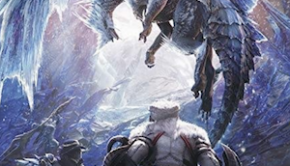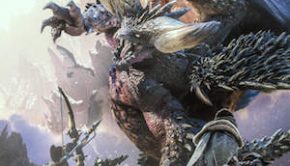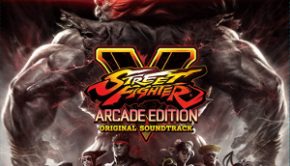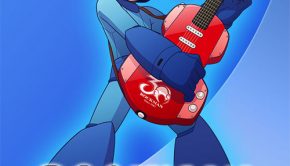Manami Matsumae Interview: A Career After Mega Man
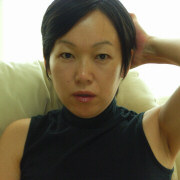 The NES’ Mega Man and Mega Man 2 might have been released over 20 years ago, but their scores — created by Manami Matsumae, Takashi Tateishi, and Yoshihiro Sakaguchi — continue to fondly remembered to this day. Following our group interview, the three musicians agreed to talk on a one-to-one basis about their works after the Blue Bomber.
The NES’ Mega Man and Mega Man 2 might have been released over 20 years ago, but their scores — created by Manami Matsumae, Takashi Tateishi, and Yoshihiro Sakaguchi — continue to fondly remembered to this day. Following our group interview, the three musicians agreed to talk on a one-to-one basis about their works after the Blue Bomber.
In this interview, Manami Matsumae reflects how she has continued to be a game composer after leaving Capcom unlike her Mega Man partners. She reflects how her compositions have featured in titles as diverse as Looney Tunes, Derby Stallion, and Dragon Quest Swords. She also discusses how she revisited her past by participating in the Street Fighter Tribute Album, Chiptuned Rockman, and Mega Man 10.
Interview Credits
Interview Subject: Manami Matsumae
Interviewer: Chris Greening
Editor: Chris Greening
Translation & Localisation: Ben Schweitzer, Christopher Ling, Shota Nakama
Coordination: Ippo Yamada, Akari Kaida
Support: Don Kotowski
Interview Content
Chris: In addition to the Mega Man series, you were involved in a range of other productions for Capcom, including F1 Dream, Area 88, Mercs, and Magic Sword. How did your sound develop through these titles? Are there any particular projects that were especially memorable for you?
Manami Matsumae: For Mega Man, since I had to work with only three notes at a time, I always wondered how to get the feeling of chords with a melody. Will the music work even with the sound effects layered in? Simple questions, but the work was exceptionally difficult.
After that I moved on to arcade projects, and I was no longer limited by three notes, so I was able to express the music I wanted using melodies and chords. But to create something that was easy to hear in an arcade was a lot of work.
The works which left the strongest impression on me were Area 88 and Carrier Air Wing. On those games the planner’s way of thinking about music matched mine, so I was able to create the music I wanted.
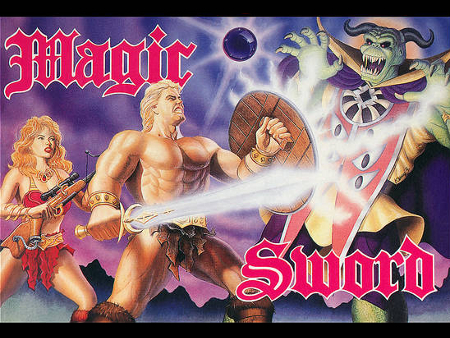
Chris: After leaving Capcom, you extensively worked on a range of light-hearted titles, such asAdventures of Lolo, Pilot Kids, and Looney Tunes adaptations. Did your work on the Mega Man series significant influence your approach on these projects or were there major differences?
Manami Matsumae: Oh, there was quite a bit of influence. When I was at Capcom learning about game music I always thought about creating melodies that were easy to remember. So after I left the company, I didn’t change course. (I still haven’t.) From there I add my ideas of the characters and settings, and I write the music to match the game. The mental image I had of the Lolo character, my Alice in Wonderland-like impression of Pilot Kids, and so on.
It hasn’t come out here, but there’s a game called Fun! Fun! Pingu ~Welcome to the South Pole~, and I created most of the elements (all of the scene music and movies and such), and I really like it.
Chris: Since then, you’ve created numerous compositions for the Derby Stallion series. What music did you feel was appropriate for these horse-racing simulations? Were there opportunities to evolve the series’ music in later instalments of the series?
Manami Matsumae: Derby Stallion was my first simulation game. Until then I had only worked on action and shooting games. “What have I done wrong,” I worried, but it turned out that Hiroyuki Sonobe-san (Derby Stallion’s creator) had specifically requested me. That was what troubled me the most. (laughs)
So I looked at the screens, and wrote March-flavored music, Pastoral music, and so on. Sonobe-san really loved the music I wrote for the initial Kanto version, so I continued in that vein for following games. There were some developments — the tone colors improved, the number of voices increased — but the foundation is the initial Kanto version.
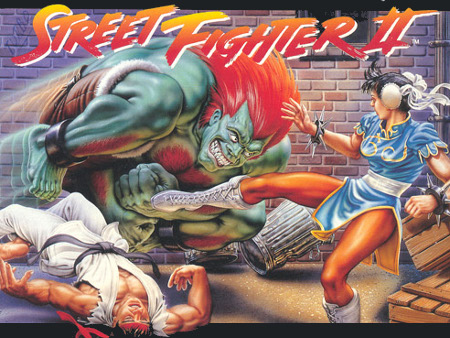
Chris: While you’re best known for the Mega Man franchise, you’ve also arranged for other popular franchises. In particular, could you discuss what it was like to work on the collaborative Street Fighter Tribute Album and produce the Akumajo Dracula MIDI Collection alongside your husband Kimitaka Matsumae?
Manami Matsumae: For the tribute album, I was contacted by my husband’s friend Hosoe-san, and I ended up doing an arrangement. I wanted to avoid damaging the original as much as possible. The original composer Shimomura-san sent the MIDI data, and using that as a base, I shaped the arrangement. My husband did the mastering. For Akumajo Dracula MIDI Collection, my husband did a track, and I did another, but I don’t remember it very well. I’m sorry.
Chris: Furthermore, you are the only person other than Koichi Sugiyama to compose for the Dragon Quest franchise. Could you discuss what it was like to inherit the composing duties for Dragon Quest Swords? Did you aim to emulate Sugiyama’s style of music or express your individuality?
Manami Matsumae: I got a phone call from Sugiyama, and I was surprised and honored. Regaining my composure, I felt “there are other much better people, so why me…?” But since I was going to do it, I felt I should give it my all.
Sugiyama didn’t say anything about my compositions. He only said “today’s game music is generally unmemorable. Please create some easy to remember melodies.” So I didn’t follow his style. I looked at the screens and wrote music based on my interpretations of them.
Since I had been writing music that focused on melody since I was at Capcom, writing the music was not that difficult, and I enjoyed writing for Sugiyama. “Thank you for the beautiful melody,” he said, and I was happy. “Well, work hard on the next stage too!” And I had one success after another. Appreciation is a very important thing, I felt.
But, at the very end, I was falling apart trying to get the ending theme right, and I couldn’t write anything for three days in a row. The producer, Ichimura-san said “you can just finish it however you like!” It became a lot easier to write (I hadn’t realized for a long time, but it seems like I had been working tensely, and people had noticed) and I finished the final track. I regained some confidence in my own music, having had the opportunity to write for such a big title.
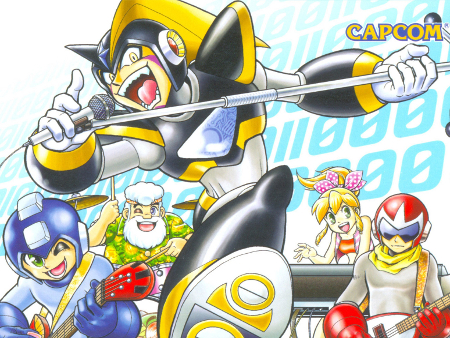
Chris: You’ve also recently returned to the Mega Man series for guest roles on Chiptuned Rockman, theMega Man 9 arranged album, and Mega Man 10 soundtrack. How did you approach each of these productions? Did you aim to imitate your original works on the Mega Man series or did you reflect new facets of your musicality as well? Many thanks for your time today and best wishes for the future.
Manami Matsumae: After a very long time I participated in a Mega Man project again. If I hadn’t received a message from Yamada-san (of Inti Creates), I probably wouldn’t have participated. Although I worked on arranging for Chiptuned Rockman, I primarily worked with chords instead of the original’s three notes. I mixed in sound effects, and it turned out quite well.
All images on this interview are copyright of Capcom. Many thanks to Ippo Yamada, Akari Kaida, and Don Kotowski for coordinating this interview. Thank you to Ben Schweitzer, Christopher Ling, and Shota Nakama for their help at various stages in the translation process. Finally, thank you to the staff at Inti Creates and Capcom for their cooperation.
Posted on November 8, 2010 by Chris Greening. Last modified on March 2, 2014.

